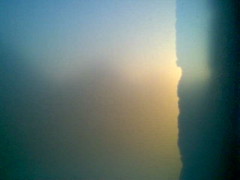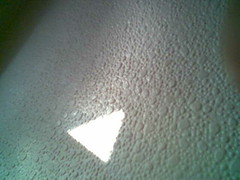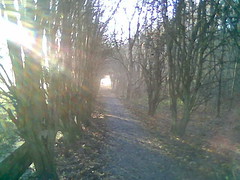Thursday 29th: Jan and Mechelen – Spring/Summer 1941
He remembers resolving, that night, to practice his musicianship – he was being taught piano, violin, and ‘composition’ at school – so that he could become a professional musician or, better still, a composer.
The viola player was a young woman, maybe five years older than the teenaged Mechelen, and her bare arms were goosepimpled in the cold church. He was struck by the seriousness with which she regarded her dimly-lit score on its rickety metal stand, and by the way that her face relaxed suddenly into a bright smile as soon as a movement ended and she met the eyes of her fellow players: a spark of warmth and of wordless congratulation passed between them, and Mechelen envied them their closeness and camaraderie. Particularly, he envied the men their closeness to this slender young woman with her hair piled up and pinned on the back of her head. Her dark green satin dress. Her goosepimpled skin. If he learned his music lessons properly, and became proficient at his playing and writing, young ladies like this would take notice of him: at the moment, though, he was ignorant and untalented, conscious of his limitations. Whenever the viola player scanned the faces in the pew Mechelen was sitting in, he had to look away, lest she catch his eye and detect his ignorance and wavering confidence. He shyly tries to catch sight of her bare throat, and the start of the bony declivity dropping away to her flattish chest.
The piece that really held him and inspired him was a four-voice [Bach] fugue that the quartet played about halfway through their recital. The rest of the music had been very pleasant, and proficiently played, but there was something special about this fugue: he’d listened to the cellist’s stilted introductory speech and resolved to try and follow just one of the lines all the way through while the other instruments echoed it and wove their delayed echoes around the first instrument’s next development of the theme. Partly this was in recognition of this composer’s greatness and centrality to the western canon (and thus a desire to prove to himself that he was worthy of having this great music played to him), and partly it was the intellectual challenge of being able to maintain focus on the interwoven but distinct voices of the different instruments.
The first violin was the instrument nearest to Mechelen, and he stared alternately at the violinist’s fingers and face (the musician’s eyes reflecting the candlelight glassily) as the slow, elegant opening phrase was articulated gently in the gloom, the echoes resonating up into the pitch-dark space between the cracked, barely-visible wooden rafters. Beneath the sound of the music cracked the dry sound of seatbacks creaking under people’s shifting weight.
He made it to bar [15], just after the third instrument’s voice had joined, before he last track of the first violin’s lilting line. Even watching the violinist’s every movement and mapping these movements to the onflow of sound didn’t enable him to pick up the separate voices again. So he just luxuriated in the overlapping waves of sound, waving his head and torso gently in time to the echo and sway of the string sounds. And he vowed that he would meet the challenge of the fugue and – one day – master the understanding of it. It would not defeat him.
[H] waits for the officers’ applause to recede and then says, “This will be my last song gentlemen; I’m afraid that all this dust has made me a little hoarse.” (Some wag inevitably says “Nay, nay”, and there’s some willingly forced laughter.)
3. Captain Thomas is pleased that [H]’s recital will soon be ending – this isn’t his idea of musical entertainment: far too knowingly ‘sophisticated’ for his liking.
Of course, the traditional tunes and poetry are all very well in themselves, but there’s something cloying and precious about their combination in this ‘art song’ arrangement that robs them of their authenticity and beauty. So artificial. In his own head, he’s been trying to listen to his brain’s reconstruction of one of the jazzy dance band arrangements that became so popular during the 30s, and to which he and his fiancé used to dance every Friday and Saturday night at the Rialto Ballroom in L_ge. Lise was a fine dancer, very natural and fluent, and he always felt clumsy in her presence, even though she would help him, and make it appear that he was leading forcefully and knowledgably. But she was doing all the work for him, of course.
His favourite part in the dance band tunes is when the trumpets and trombones take up their little ‘solo’ parts in the middle of the songs; when the band leader steps back and smiles, and the boys with the trombones and trumpets stand up together and swing their horns in synchrony. It always makes him smile, and fills him with a naïve delight. That’s real music – real people playing their hearts out and making people laugh. No over-intellectual flannel getting in the way.
In ’36 Lise had her hair cut in the season’s fashionable short style, with a suggestion of curl s at the hair ends. This cut required a lot of preparation and maintenance, and that summer they seemed to arrive at the dance hall later and later due to Lise’s delays. It shames him to remember how irritated he became with Lise, and how sarcastically he would commentate on the trams they had missed as they stood at the roadside stop waiting for the next one [in the city’s fuming summer evening dusk]. Lise was a remarkably even-tempered young woman (everyone remarked at how different they were as a couple in this respect), but he could see her face tighten, the skin looking hard and taut in the glow of the streetlights, and she would tensely light a cigarette (not offering him one) and drag savagely at it. He remembers her fingernails, painted red, dark and glossy under the lights.


